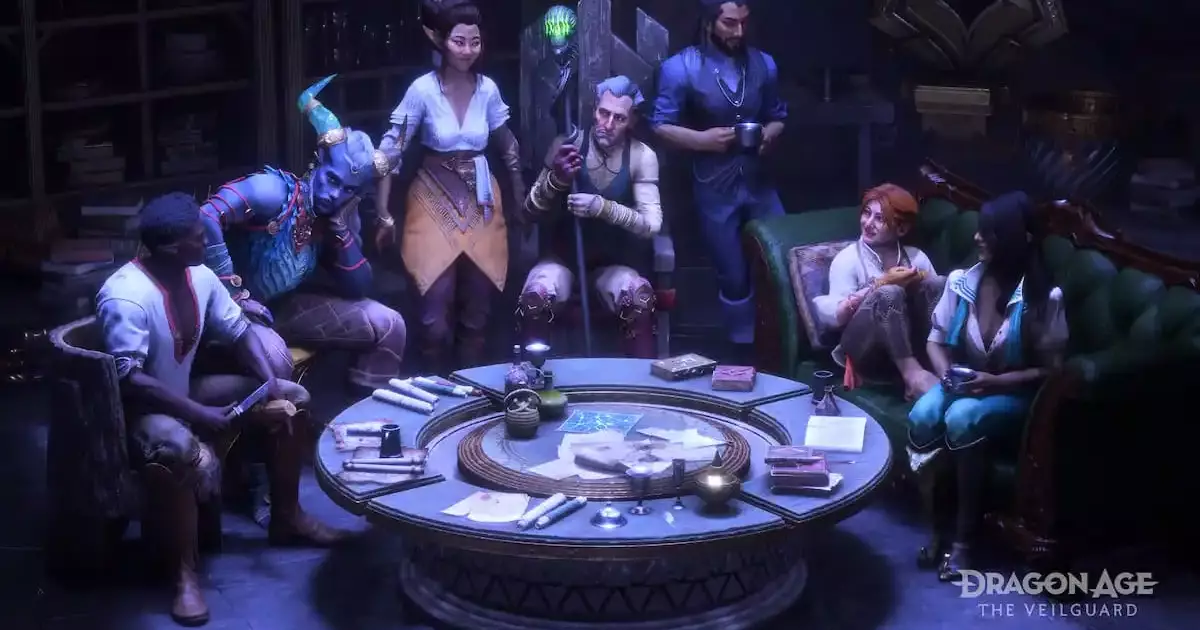The Dragon Age franchise stands out in the realm of fantasy role-playing games (RPGs) for its intricate web of narratives and the ambiguity that permeates its lore. Unlike many fantasy RPGs that offer neatly packaged stories with clear resolutions, Dragon Age thrives on contradictions and diverse interpretations that stem from its richly developed character races and their varying beliefs. This complexity is essential to the franchise, providing not only entertainment but also an invitation to players to engage deeply with its world.
One of the most captivating aspects of Thedas, Dragon Age’s setting, is its multilayered history that is colored by the identities and experiences of its inhabitants. Each faction interprets history through its own lens: humans, elves, and qunari all hold unique views that lead to significant political and social rifts. This tension, fueled by differing beliefs about the past, paves the way for pivotal plot developments throughout the series. Here, the nuances of each faction’s understanding become the bedrock of both conflict and cooperation, not only enriching the storytelling but also rendering Thedas a more immersive and believable world.
David Gaider, the franchise’s former lead writer, emphasizes the significance of exploring these interpretations through a framework laden with doubt. He argues that to comprehend the truth of Thedas, one must embrace the ambiguities that come with its history. “To get the truth, you kind of have to pick between the lines,” says Gaider, highlighting that exploring Thedas is more about personal interpretation than chasing certainties. The Fade, the mysterious realm that serves as the source of magic, exemplifies this ambiguity. By deliberately skewing historical accounts and crafting tales filled with biases, the writers ensure that players are perpetually questioning, allowing them to forge their own narratives within the grand tapestry of the lore.
The forthcoming title, Dragon Age: The Veilguard, poses an intriguing question concerning the ongoing narrative—the potential resolution of what Gaider refers to as the “uber-plot.” Without revealing too much, this installment hints at the return of ancient elven deities possessing firsthand knowledge of Thedas’s origins, including the enigmatic Black City. While the introduction of these gods could pave the way to clarity about the world’s creation, Gaider expresses uncertainty about whether revealing such truths would compromise the foundational tenets that underlie the franchise. The possibility of these revelations feels both thrilling and daunting, akin to a double-edged sword that may either enhance the lore or diminish the allure of mystery.
Gaider’s analysis leads us to ponder—if definitive answers are provided, do we risk undermining the inherent beauty of ambiguity? In literature, the concept of Chekhov’s Gun posits that every element introduced in a story should serve a purpose, implying that unresolved mysteries must eventually yield answers. However, in the context of Dragon Age, the allure lies in its open-endedness, where players are encouraged to speculate and derive personal meanings from the unfolding narrative.
The Role of Player Interpretation
What makes the Dragon Age experience so compelling is its capacity to reflect the complexities of human belief systems and the nature of truth. Players encounter a spectrum of conflicting narratives that continuously invite them to explore and interpret. This engagement transforms the gaming experience into a philosophical exploration, where certainty is elusive, and truth varies depending on the observer.
Many players may lament the limitations imposed by conventional RPG storytelling, where knowledge is accrued methodically like ticks on a checklist. In contrast, the lack of straightforward answers in Dragon Age dares players to embrace a more nuanced approach to storytelling, blurring the line between truth and fiction. Players become active participants in shaping the narrative, their choices infused with personal insight that echoes the divergent beliefs of Thedas’s inhabitants.
Ultimately, the enduring charm of Dragon Age lies in its celebration of narrative complexity and ambiguity. Through rich lore filled with competing narratives, players are invited into a world where truth is subjective and the journey of discovery is as enticing as the resolution itself. As The Veilguard unfolds, it will be fascinating to see how BioWare navigates the balance between answering the pressing questions of its universe while preserving the intricate dance of uncertainty that has made the series so beloved. The duality of wanting resolution while cherishing ambiguity captures the essence of fantasy storytelling, which is as varied and multifaceted as the characters that inhabit Thedas.


Leave a Reply